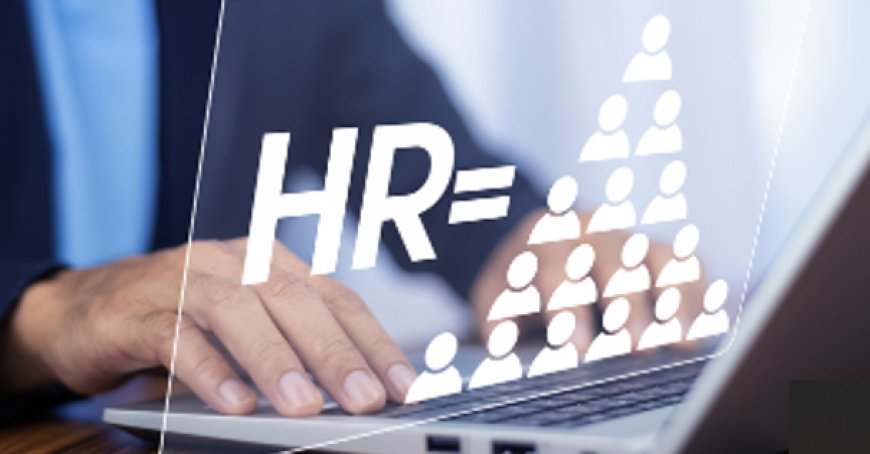- Members 129697
- Blogs 126

Today, the global artificial intelligence in HR market growth shows reaching a mark of USD 6.18 billion by 2024 (thebusinessresearchcompany.com). The human resources department of an organization is going through a significant transformation. Today’s HR professionals are not confined to only recruiting or other administrative tasks. They are an active participant among strategic business stakeholders in making key decisions for organizational success. This is why it is imperative to understand the HR analytics mechanism and how it impacts the entire business landscape in today’s times.
Why is HR Analytics necessary in an organization?
HR analytics is the process of collecting and analyzing human resource data to enhance an organization’s workforce overall performance. These methods of data analysis collect data that are collected daily by the human resource teams and correlate it to HR and organizational objectives. It is critical to deploy such measures in an organization to address the following questions:
- What patterns can be revealed in employee turnover?
- How long does it take to hire employees?
- What investment is needed to upskill employees to a fully productive pace?
- Are learning and development initiatives leaving an impact on employee performance?
This is not all! HR Analytics benefits the organization by:
- Identifying trends and patterns
- Predicting future outcomes
- Gauging the effectiveness of HR initiatives
HR ANALYTICSProsCons
- Facilitates highly accurate data-driven decision-making approach
- Enhanced strategies for employee retention
- Improves employee engagement
- Better customized recruitment and hiring procedures
- Trends and patterns in HR data help in predictive forecasting and yield a productive workforce
- Lack of statistical and analytical skills among HR professionals
- Different management and reporting systems within an organization
- Poor access to quality data
- Lacks access to quality analytical and reporting software to be utilized for data collection
- Ethical issues may emerge due to the monitoring and collection of a humungous data pool
What is HR Analytics Certification?
HR Analytics Certifications are strategically designed credentials that enable bridging the skill gap in the HR departments. These trusted credentials empower HR professionals with the most critical data science skills, tools, analysis, and data interpretation skillsets. These HR Analytics programs help you train in enhancing:
- Statistical analysis
- Data visualization
- HR metrics and reporting
- Workforce planning
- Talent management
HR Analytics Certifications- Current Trends:
- Increased demand
Getting certified with credible HR Analytics certifications makes you an instant pick in front of your future recruiter. This is a clear validation of your capabilities and skills gained at the course to deploy for strategic decision-making.
- Skill enhancement
These enhance your capabilities and enable you to level up and work in consonance with certified data science professionals as well.
- Industry recognition
These credentials power up your industry acceptance by recognizing your mastered skills.
- Job opportunities
With the most trusted skills gracing your portfolio, you are being offered the most rewarding career opportunities.
- Competitive edge
It is a clear fact that professionals with sheer skills power up can enjoy a streak above their competitors. You are also offered a higher salary bracket when you enhance your credibility with these HR analytics certifications.
- HR Analytics job roles
You can enjoy diverse career opportunities with a variety of roles on offer. HR analytics jobs offer a massive diversity with astounding career advancement opportunities.
HR Analytics Mechanism:
Collect>> Measure>> Analyze>> Apply
Following these broader steps; HR analytics procedures are facilitated at an organization. Big data is collected and aggregated by HR to analyze and evaluate key HR practices, talent management, training, and performance.
Collecting and tracking high-quality data is the foremost step in HR analytics. The types of data collected include employee profiles, performance, data on high and low performers, salary and promotion history; onboarding, training, engagement, retention, turnover, absenteeism, and demographic data.
Thereafter, HR analytics teams with certified data science professionals measure and compare collected data against historical norms and organizational standards. The metrics on which this data is analyzed and monitored involve:
- Organizational performance
- Operations
- Process Optimization
Examples of popular metrics being deployed include time-to-hire metrics, Absenteeism, turnover, recruitment cost-to-hire metrics, and engagement rating metrics.
This is followed by the analytical methods deployed on the outcome desired which include descriptive, prescriptive, and predictive analytics. The analysis stage is followed by the eventful application; which incorporates the deployment of the findings as an actionable insight for organizational decision-making goals.
HR Analytics Certification- Benefits for Organizations:
Leveraging data-driven decision-making is facilitated by qualified HR analytics professionals and certified data science professionals. Gaining sheer competence in these skills and an in-demand job profile; your business is sure to handle big data with ease. Hiring professionals with the most trusted data science certifications gracing their portfolio shall be the first step to making big profits for businesses worldwide. The time is now to understand the urgent need to excel with HR analytics certifications to facilitate a higher growth trajectory for your business and thriving career growth for yourself in the long run. These professionals shall enable organizations to create a future that prevents problems and solves future challenges before they even happen; and save on future costs, revenue, goals, and productivity. Make a wise decision now!
